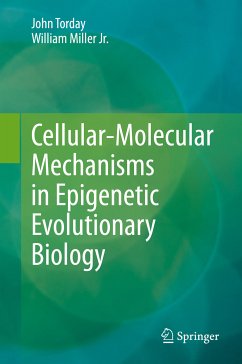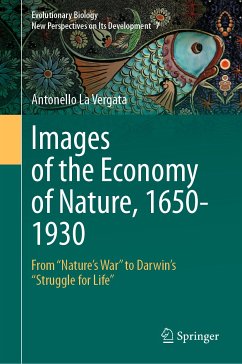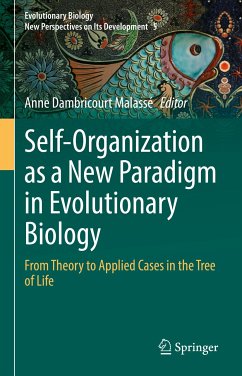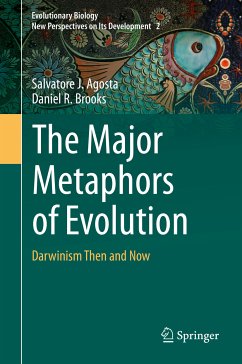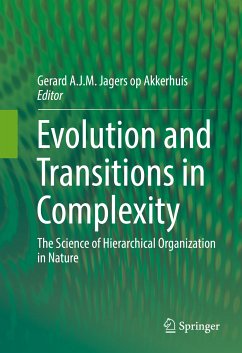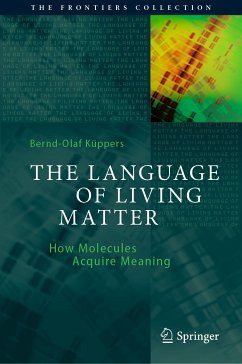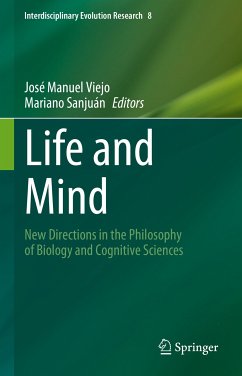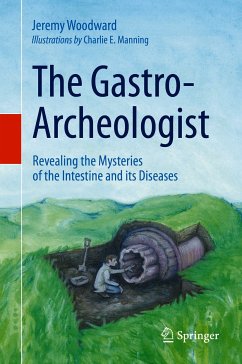
Hormones and Reality (eBook, PDF)
Epigenetic Regulation of the Endocrine System
Versandkostenfrei!
Sofort per Download lieferbar
120,95 €
inkl. MwSt.
Weitere Ausgaben:

PAYBACK Punkte
60 °P sammeln!
Cellular-molecular approach to evolution has led to radical changes in our understanding of biologic principles ranging from the Cell, to the Life Cycle, Development, Homeostasis, Senescence/Aging, Heterochrony, Pleiotropy, Phenotype, and perhaps the purpose of life itself. Much of this new way of thinking about biology and medicine emanates from experimental evidence for epigenetic inheritance. This leads one to question whether our unicellular state is the actual primary level of selection.One particular system that is now recognized as being under the auspices of epigenetic inheritance is t...
Cellular-molecular approach to evolution has led to radical changes in our understanding of biologic principles ranging from the Cell, to the Life Cycle, Development, Homeostasis, Senescence/Aging, Heterochrony, Pleiotropy, Phenotype, and perhaps the purpose of life itself. Much of this new way of thinking about biology and medicine emanates from experimental evidence for epigenetic inheritance. This leads one to question whether our unicellular state is the actual primary level of selection.
One particular system that is now recognized as being under the auspices of epigenetic inheritance is the endocrine system, which is conventionally thought to regulate physiologic homeostasis. However, because the sex hormones play such a major role in behaviors related to the acquisition of epigenetic data, and the processing of such epigenetic data by the gonads during meiosis, their role in the evolution of the organism become tractable. The composite of the activities ofthe individual over the course of its lifetime can now be understood causally, resulting from the orchestration of its physiology by hormones, prenatally, postnatally and during the aging process, across the entire life span of the organism. Specific behaviors over the course of the life cycle during childhood, adolescence, puberty, adulthood and aging can now be understood mechanistically rather than merely as milestones in the various stages of life.
With the above considerations in mind, this book presents the cellular-evolutionary perspective towards the relationship of the organism with its surroundings, human and non-human alike renders biology and medicine a continuum instead of fragmented, un-related anecdotes.
One particular system that is now recognized as being under the auspices of epigenetic inheritance is the endocrine system, which is conventionally thought to regulate physiologic homeostasis. However, because the sex hormones play such a major role in behaviors related to the acquisition of epigenetic data, and the processing of such epigenetic data by the gonads during meiosis, their role in the evolution of the organism become tractable. The composite of the activities ofthe individual over the course of its lifetime can now be understood causally, resulting from the orchestration of its physiology by hormones, prenatally, postnatally and during the aging process, across the entire life span of the organism. Specific behaviors over the course of the life cycle during childhood, adolescence, puberty, adulthood and aging can now be understood mechanistically rather than merely as milestones in the various stages of life.
With the above considerations in mind, this book presents the cellular-evolutionary perspective towards the relationship of the organism with its surroundings, human and non-human alike renders biology and medicine a continuum instead of fragmented, un-related anecdotes.
Dieser Download kann aus rechtlichen Gründen nur mit Rechnungsadresse in A, B, BG, CY, CZ, D, DK, EW, E, FIN, F, GR, HR, H, IRL, I, LT, L, LR, M, NL, PL, P, R, S, SLO, SK ausgeliefert werden.



